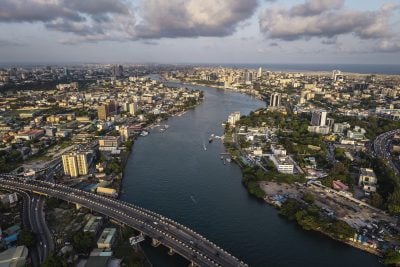The probability of South Africa being greylisted by the Financial Action Task Force (FATF) is as high as 85%, according to a report commissioned by Business Leadership South Africa (BLSA) and compiled by analysts Intellidex.
The FATF, an intergovernmental organisation founded to develop policies to combat money laundering and terrorism financing, will decide at its February plenary whether South Africa is to be greylisted, which would represent a significant blow to a country which once enjoyed a reputation for financial probity.
According to the report’s authors, the heightened risk of greylisting “is primarily a result of the undermining of institutions in the criminal justice system during the state capture era,” associated with the former presidency of Jacob Zuma, who left office in 2019 after nine years in power.
The analysis estimates that the economic impact of greylisting could be limited or severe depending on how South Africa reacts to the designation. It estimates the impact at under 1% of GDP if the country acts with speed to reform its financial markets versus 3% of GDP if South Africa is perceived to be slow and unwilling to meet the standards set by FATF.
“A serious government-wide effort to fully implement the FATF’s recommended actions to comply with all FATF requirements urgently, will assure counterparts that greylisting will be short-lived. In contrast, if South Africa is perceived as being inactive in addressing the FATF’s concerns, the costs will be high,” says the report.
The economic impact will come primarily from the increase in transaction costs for cross-border payments, as well as the general reputational impact of a greylisting, notes the BLSA in a statement. Global financial firms and banks will be required to apply enhanced due diligence to any South African client, leading to more invasive and extensive processes of assessing the source of funds and probity of clients.
Both the UK and European Union, for example, require institutions to apply enhanced due diligence to any greylisted country, leading to an increased compliance burden which could lead firms to shun South Africa. Greylisting will also complicate access to bilateral and multilateral development funding, the organisation says.
Progress lacking, say analysts
Concerns were highlighted in October 2021, when the FATF adopted a mutual evaluation report identifying serious weaknesses in South Africa’s anti-money laundering and counter-terrorist (AML/CFT) financing framework and effectiveness following a 2019 peer review. The adoption of the report triggered a one-year observation period.
The FATF says that South Africa must address the fact that it is partially compliant or non-compliant with 20 of the “Forty Recommendations” which all conforming nations must adhere to, and must satisfy an effectiveness assessment that has found it to be critically weak on all 11 “immediate outcomes” that are expected to reflect effectiveness of an AML/CFT regime.
The report says that South Africa is currently lacking in several crucial progress areas: “The FATF’s mutual evaluation report set out 12 ‘priority actions’ for South Africa to address the deficiencies outlined in the FATF’s report. South Africa needs to demonstrate substantial progress on the priority actions. On our analysis, South Africa has only fully implemented two of these recommendations. The other 10 are being addressed, but we believe that there has not been any notable progress on three of these.”
The analysis says that “little to no progress has been made” in the supervision of designated non-financial businesses and professions such as estate agents, Krugerrand dealers, and attorney firms. They also urge the Directorate for Priority Crimes Investigations, known as the Hawks, to take on more financial investigators and forensic accountants, and warn that a beneficial ownership regime will take time to be effective.
Greylisting is likely
In the meantime, South Africa must prepare itself for the likelihood of a greylisting, says the report.
“Given our view that South Africa is unlikely to avoid grey listing, the focus must be on minimising its impact. This is achieved by a) mounting a comprehensive and credible effort to address FATF concerns and exit the grey list as soon as possible; and b) preparation by the private sector to engage with foreign counterparts to minimise the impact of enhanced due diligence.”
The government must lead the way in responding to the FATF, it says.
“The most difficult challenges in meeting FATF expectations are to build institutional capacity, processes and systems in key parts of the supervisory, investigation and prosecution services, as well as departments like Home Affairs and Social Development, requiring coordinated action across government…we recommend that the Presidency set up an internal task team to lead the government response to grey listing, working with the Inter-Departmental Committee assembled by National Treasury.”
BLSA CEO Busisiwe Mavuso says that the report shows the importance of a robust response to the possibility of greylisting.
“This report provides clear guidance on what we as a country must do to ensure that grey listing does not cause long-term damage to the economy. We all need to work together to ensure our commercial crime investigation and prosecution, as well as anti-money laundering and terrorist financing supervision is world class. That is in the best interests of South Africa anyway.”
Want to continue reading? Subscribe today.
You've read all your free articles for this month! Subscribe now to enjoy full access to our content.
Digital Monthly
£8.00 / month
Receive full unlimited access to our articles, opinions, podcasts and more.
Digital Yearly
£70.00 / year
Our best value offer - save £26 and gain access to all of our digital content for an entire year!
 Sign in with Google
Sign in with Google 



